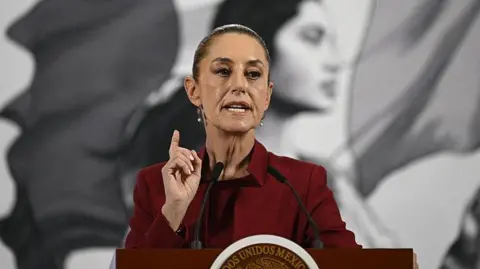Understanding the Gulf of America: Renaming Controversy, Geography, and Global Impact
The recent decision to rename the Gulf of Mexico to the "Gulf of America" has sparked significant debate and international attention. This development not only reflects changes in geopolitical landscapes but also highlights the growing role of digital platforms in shaping worldwide perceptions.

The Origins of the "Gulf of America" Name Change
The controversy began when the United States government issued an executive order to rename the Gulf of Mexico as the Gulf of America for federal agencies. Following this, major tech companies, including Google, updated their US-facing platforms to reflect the new name. For American users of platforms like Google Maps, the body of water bordered by the US, Mexico, and Cuba now appears as the Gulf of America. International users, however, might see both names used interchangeably.
Mexico’s Response to the Gulf Renaming
Mexico has strongly objected to this change. President Claudia Sheinbaum made it clear that the US order was only supposed to be effective for the US portion of the continental shelf. Instead, platforms have adopted the new name across entire borders, prompting diplomatic friction. The Mexican government formally requested Google to reconsider, citing the lack of US authority to rename the full gulf. After multiple ignored appeals, Mexico has proceeded with legal action against Google. For more details, see Mexico sues Google over 'Gulf of America' name change.
International Implications and Media Reactions
This dispute has escalated beyond bilateral tensions. Naming bodies of water can carry deep geopolitical symbolism, affecting maps, official documents, and public perception. Media outlets such as the Associated Press have also taken a stand by refusing to use the new Gulf of America name, which led to restricted access at White House events. A federal judge intervened to resolve the conflict, reflecting the seriousness of this issue in US domestic affairs (learn more here).
The Role of Technology in Global Naming Conventions
Technology platforms like Google Maps play a crucial part in shaping global understanding of geographic names. Their decisions influence educational resources, business operations, and diplomatic relations. Google has stated that it follows naming changes made by official government sources, but this policy raises questions about neutrality and its impact on international consensus.
What’s Next for the Gulf of America?
As the debate continues, both governments and the public await further legal and diplomatic resolutions. The outcome could set an important precedent for future disputes over geographic naming rights, not just for the Gulf of America but worldwide. This issue highlights the complex intersection of technology, politics, and international law in our interconnected age.
In summary, the Gulf of America renaming controversy serves as a vivid reminder of how names hold power. They can shape history, identity, and diplomacy across continents. To stay informed about new developments, follow reputable news sources and official government updates.